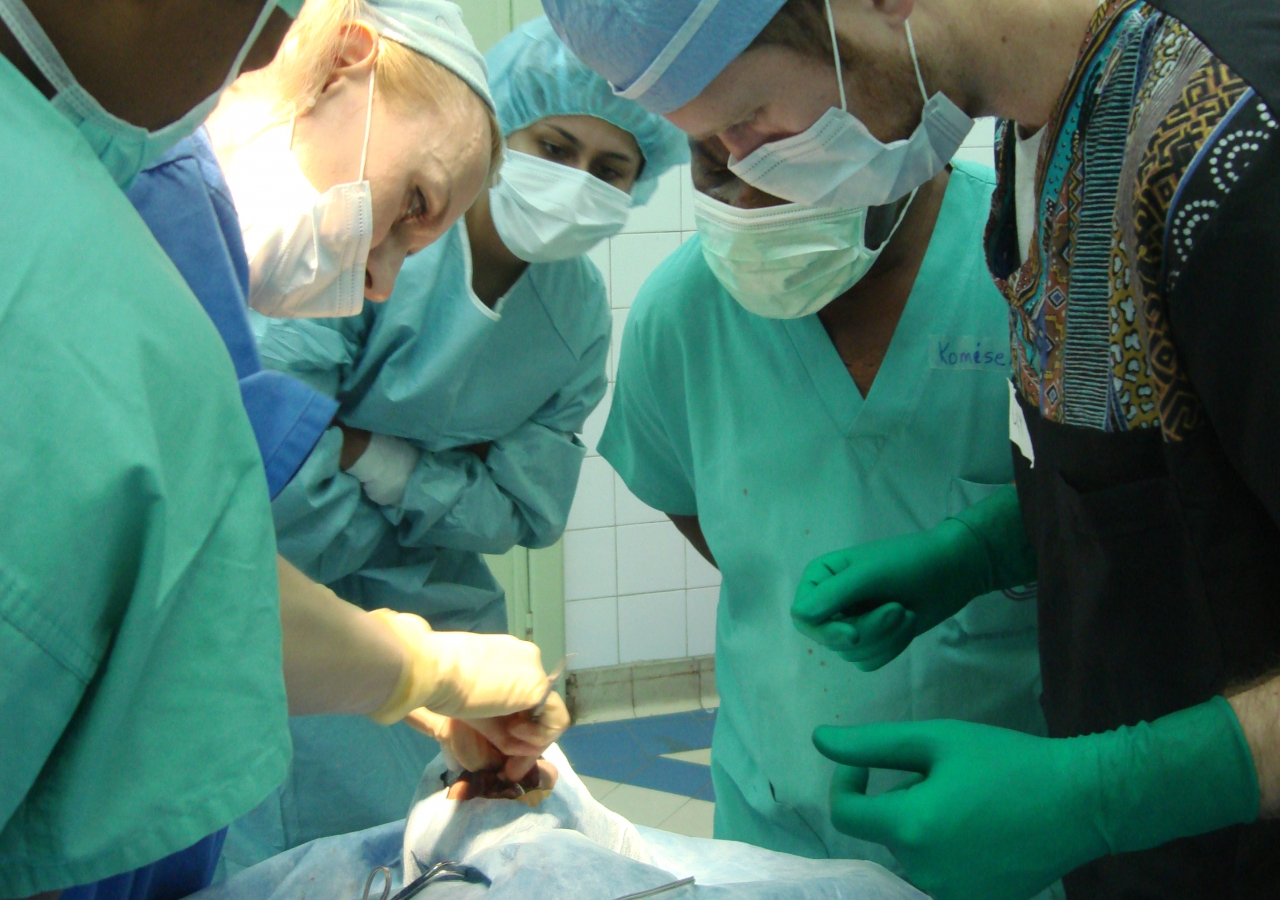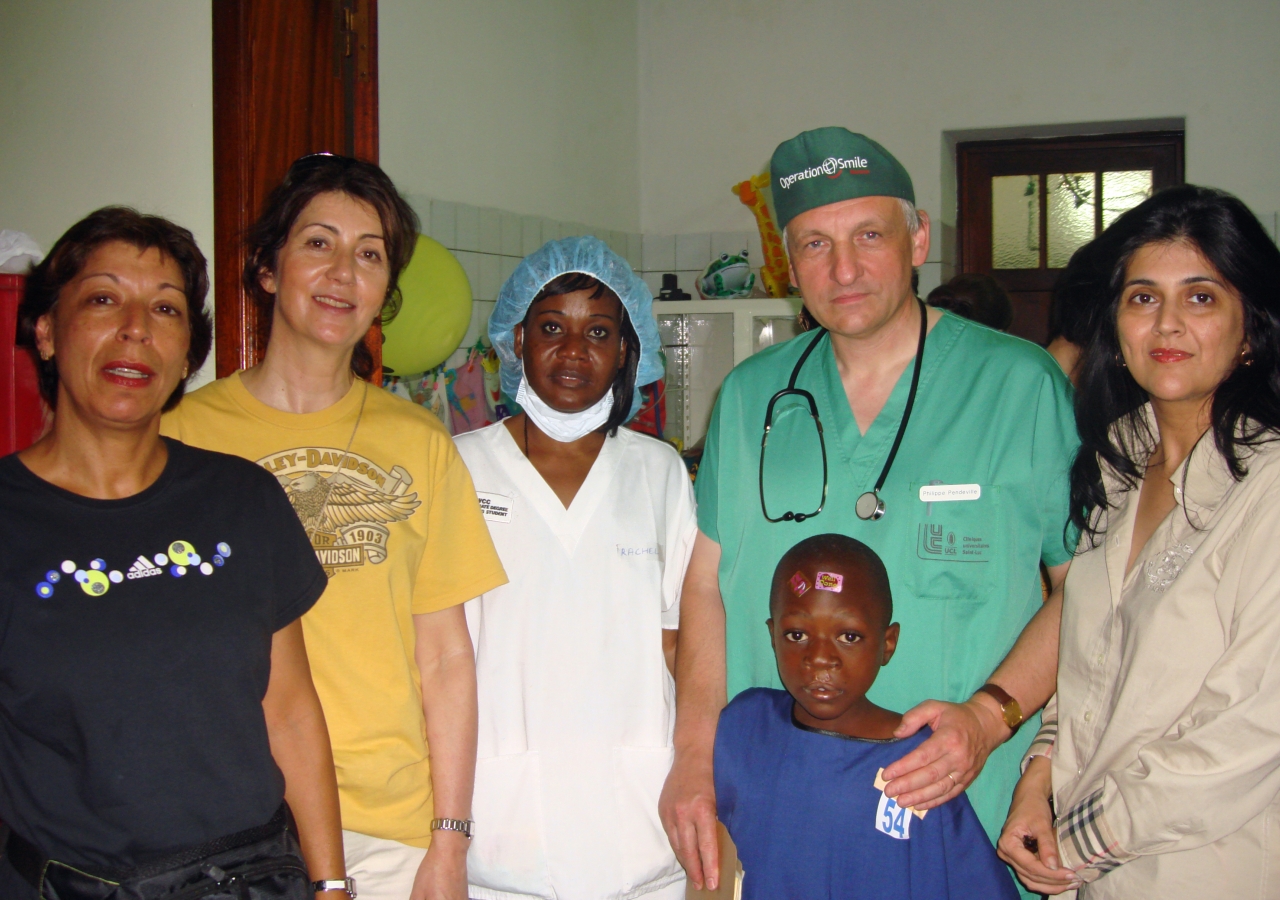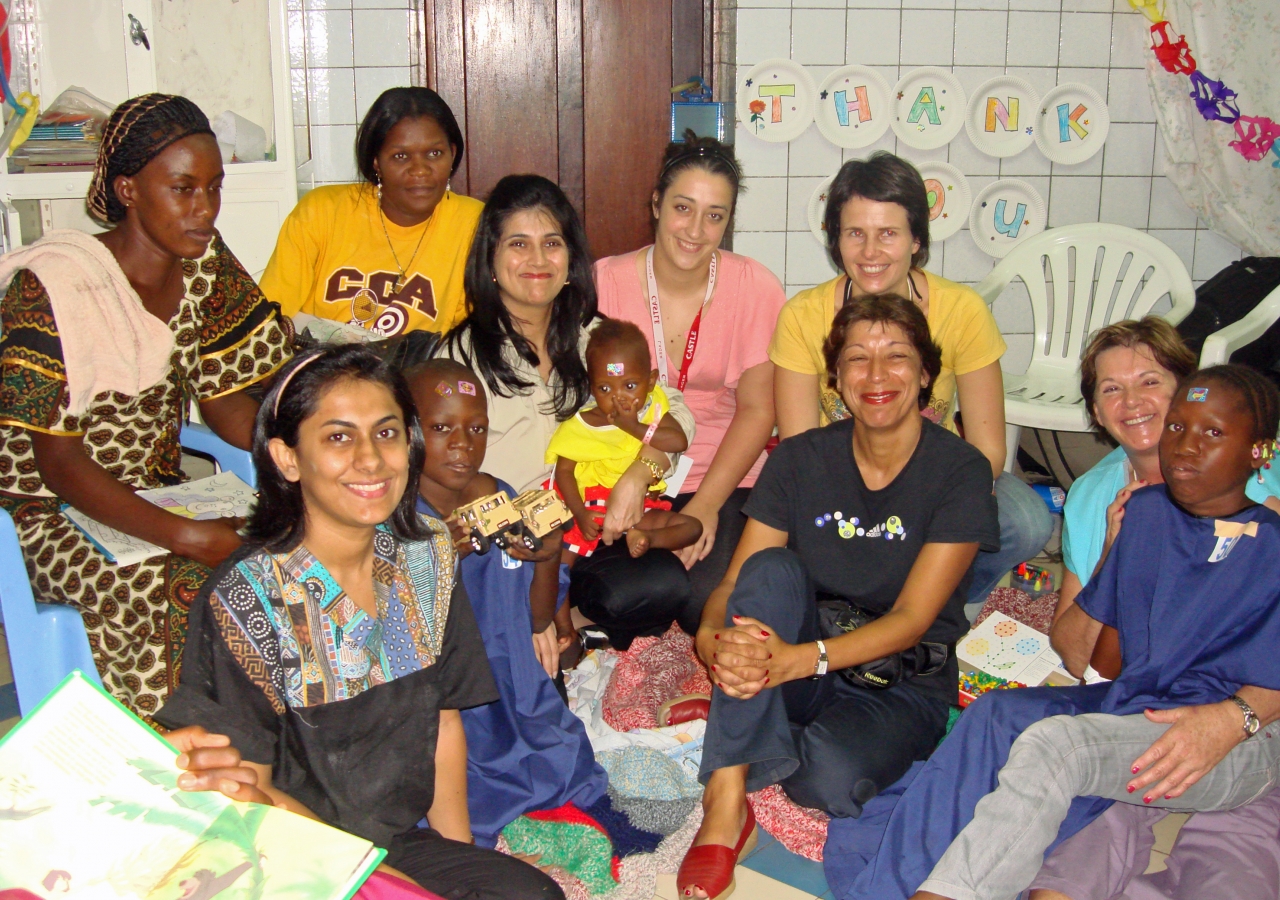The week-long mission, which took place in May at the Clinique Ngaliema, provided corrective surgery for children and adults born with facial deformities like cleft lip and cleft palate.
The first two days were reserved for screening patients who travelled to the city from remote areas of the DRC. A total of 377 patients were screened – ranging in age from a 5-day-old newborn to adults in their 60s – of which 156 patients had surgery. Those not eligible for surgery were given custom made dental obturators fabricated on site by the team. Nineteen of the screened patients were identified as potential candidates for Operation Smile's World Care programme, designed specifically for patients with more complicated craniofacial disfigurements.
Two Ismailis were at the forefront of bringing the Operation Smile mission to the DRC. Nargis Manji and Shamshad Haji worked tirelessly for several weeks managing logistics and ensuring that all arrangements were in place for when the mission arrived in Kinshasa.
Manji is no stranger to Operation Smile – she supported the organisation's inaugural mission to the DRC in May 2009, where 555 patients were screened resulting in surgery for 215 children and adults. The scope of her work ranged from raising funds for the mission to arranging accommodation and meals for a team of 57.
Beyond the cosmetic abnormality faced by children born with facial deformities, normal activities like swallowing, eating, and talking are compromised. Established in 1982 and present in over 50 countries, Operation Smile provides free surgery to restore these functions. The heroes behind the organisation are a team of dedicated plastic surgeons, nurses, anaesthesiologists, speech pathologists, dentists and other medical personnel who give generously of their time and talents to help those in need – people who would otherwise never be able to afford the surgery.
However, the healing they provide goes far beyond repairing a medical condition. After undergoing reconstructive surgery, children are no longer shy about their appearance – they are empowered to face the world with confidence and determination.
Operation Smile also brings with it a chance for local Congolese health professionals to interact with and work alongside a highly skilled team of specialists. There was plenty of opportunity for in-theatre observation, local surgeons, nurses, anaesthetists, dentists and medical students to learn the latest techniques in state of the art medical care. This contributes towards building local capacity that might one day support sustainable home-grown programmes in the DRC.
The Aga Khan Health Board for the DRC, along with several volunteers from the Jamat, also got involved in the mission. During the first two days, Ismaili students assisted with registration and translation, while providing logistical support to manage the five-stage screening process. Volunteers continued to work hand-in-hand with the Operation Smile team during the five days of surgery that followed the screening process.
Volunteer Anamika Savani described her sense of fulfilment and “satisfaction to see the smiles on the faces of children's families as they are brought out of surgery.” The opportunity to support Operation Smile is in keeping with the Ismaili community's strong tradition of philanthropy and volunteerism, particularly in areas of human relief and development.
The Aga Khan Health Board also organised a seminar led by two student medical professionals and their team. After Operation Smile was introduced to the Jamat, the mission coordinator led an information session. The students also took the opportunity to discuss general health issues, including nutrition, dental care, dehydration, malaria and other topics of interest relevant to the Jamat.
“Peace begins with a smile,” the late Mother Teresa once famously pronounced. The Operation Smile mission certainly left more people in the DRC grinning with newfound hope.








